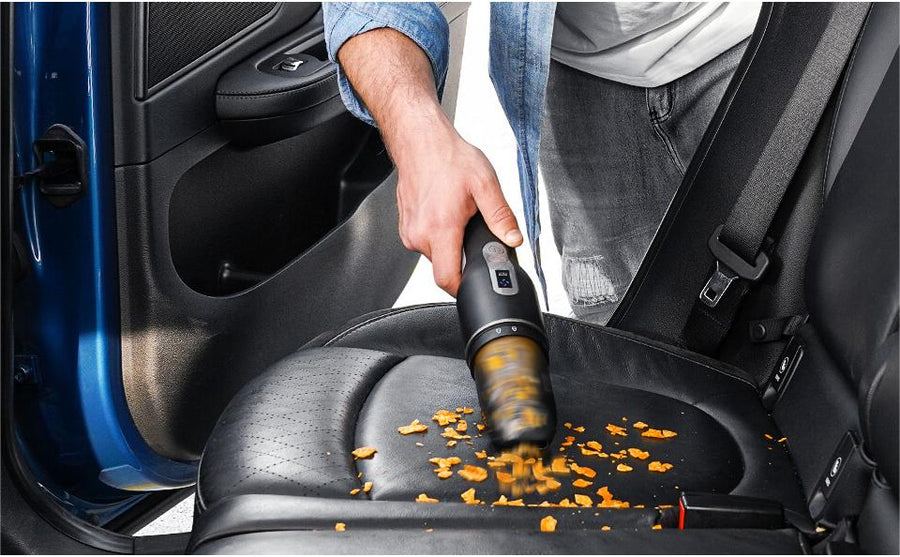Unleash Your Inner Mechanic: Discover the Essential Automotive Tools You Can't Live Without!
Whether you’re a seasoned mechanic or just starting your journey into the world of DIY car maintenance, having the right automotive tools is crucial. The satisfaction that comes from working on your own vehicle, fixing that pesky leak, or upgrading parts cannot be overstated. Not only does it save you money, but it also provides a sense of accomplishment that is hard to replicate. This article will guide you through the essential automotive tools that enhance your efficiency and ensure your safety while working on your vehicle. From hand tools to diagnostic equipment, we’ll cover everything you need to unleash your inner mechanic.

Understanding the Basics of Automotive Tools
Automotive tools can be broadly categorized into three main types: hand tools, power tools, and diagnostic equipment. Hand tools, as the name suggests, are those that you operate manually. These include items like wrenches, screwdrivers, and pliers. They are the backbone of any mechanic's toolkit, allowing for precision work and detailed repairs. Power tools, on the other hand, utilize electricity or batteries to perform tasks more efficiently. Examples include drills and impact wrenches, which can significantly reduce the time it takes to complete a job. Lastly, diagnostic tools are essential for troubleshooting issues in modern vehicles, helping you pinpoint problems quickly and accurately. Understanding these categories is the first step towards building a comprehensive automotive toolkit.
Essential Hand Tools for Every Mechanic
When it comes to hand tools, there are several must-haves for every mechanic, whether you’re working on a simple oil change or tackling a more complex engine repair. Wrenches are indispensable; a good set of both standard and metric sizes will cover most jobs. Screwdrivers are also vital, with flathead and Phillips varieties being the most common. Pliers come in handy for gripping and twisting, while socket sets allow for easy tightening and loosening of bolts. When selecting hand tools, it’s important to invest in quality; they should feel sturdy in your hand and have a good grip, ensuring that you can work safely and efficiently. A friend of mine once shared a story about how a cheap wrench broke mid-job, causing not only a delay but also a small injury—something that could have been avoided with better tools.
Specialty Hand Tools
In addition to your standard hand tools, there are specialty tools that cater to specific automotive tasks. For instance, a torque wrench is essential for ensuring bolts are tightened to the manufacturer’s specifications, which is particularly important in engine work. Similarly, an oil filter wrench makes changing oil a much simpler task, allowing you to remove filters that are otherwise difficult to reach. Having these specialized tools in your arsenal can save you time and frustration, making your repairs more effective and enjoyable.
Power Tools: Speeding Up Your Repairs
Power tools are a game-changer when it comes to automotive repairs. Drills, for instance, can not only help you with creating holes for new parts but also assist in removing old, stubborn screws. Impact wrenches are incredibly useful for loosening lug nuts and bolts that are tightly fastened, drastically cutting down the time you spend on such tasks. Grinders can help you shape metal and remove rust, which is especially handy if you’re working on older vehicles. However, it’s crucial to use power tools safely; always wear appropriate protective gear and follow the manufacturer's instructions to avoid accidents. My cousin, who works as a mechanic, once shared how a moment of inattention with a power tool led to a minor injury—another strong reminder of the importance of safety while using these efficient devices.
Diagnostic Tools: Knowing What's Wrong
In today's complex automotive landscape, knowing how to troubleshoot issues is essential. Diagnostic tools like OBD-II scanners are invaluable for reading error codes from your vehicle’s onboard computer. These codes can help you identify issues that may not be immediately apparent, saving you time and effort in the long run. Likewise, a multimeter is a versatile tool that can test electrical systems, ensuring that your battery and wiring are functioning properly. Investing in these diagnostic tools not only enhances your ability to maintain your vehicle but also empowers you to troubleshoot issues efficiently, leading to more informed decisions about repairs.
Summarizing Your Automotive Toolkit Journey
In summary, investing in quality automotive tools is essential for anyone looking to maintain or repair their own vehicle. From understanding the basics of hand tools to utilizing power and diagnostic equipment, the right tools can make all the difference in your automotive projects. Remember, the journey of hands-on vehicle maintenance is not just about the end result, but also the joy and satisfaction that comes from working with your hands. So, whether you are a novice or an experienced mechanic, start building your tool collection with confidence and take pride in the work you do on your vehicle.








